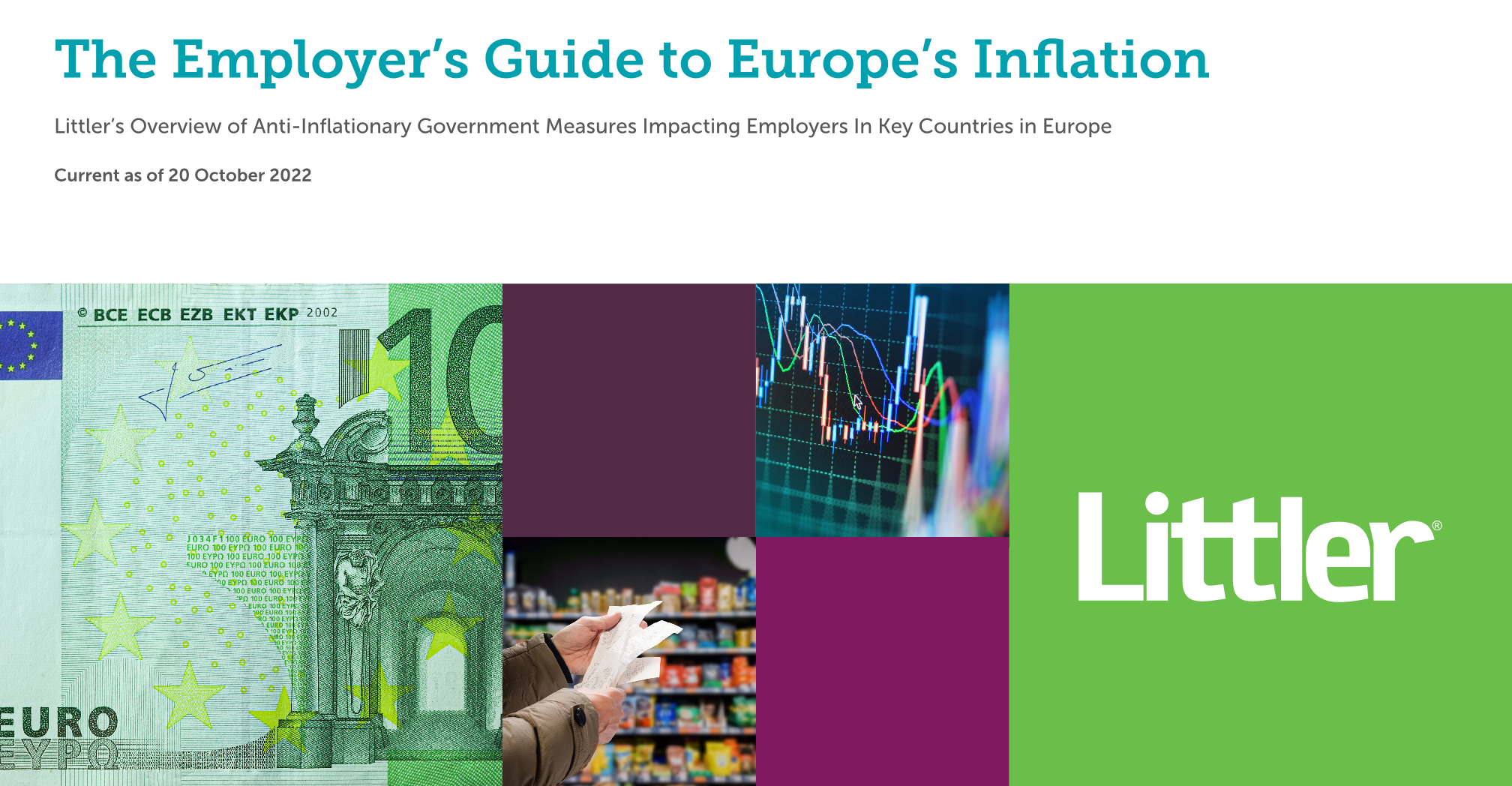After more than 2 years of dealing with pandemic, European countries are now shaken by record levels of inflation and flagging growth. To help households cope with this situation, which currently shows no sign of improving, governments and employers across Europe are adopting evolving policies. As a result of inflation, an increase in salary and benefits is expected or already occurring in the jurisdictions covered in this guide.
This guide helps multinational employers ascertain their legal obligations and options to mitigate the consequences of inflation on employees. Last updated on 20 October 2022, this report covers 13 key jurisdictions in Europe, addressing relevant questions, as follows:
- What is the current inflation rate in each country and how does it compare to 1-2 years ago?
- What is an acceptable level of inflation in each country?
- Is there a legal, regulatory and/or collective bargaining agreement obligation to increase the salary in relation to the inflation?
- What are the main employment measures taken by the government and/or employers against inflation (e.g., specific social and/or tax exempted bonuses, profit-sharing schemes, increases in benefits)?
- Are these measures provided by law, collective bargaining agreement, or only applied voluntarily?
- Are these measures permanent or temporary?
- Is there any specific social response to the inflation and/or the employment measures implemented (strikes, social movements, etc.)?

If you would like to receive a full copy of this report, please get in touch with your usual contact at PCS Paruch Chruściel Schiffter Stępień Kanclerz | Littler or write at: perspektywhr@pcslegal.pl
This guide is for informational purposes only, and not intended to substitute for legal advice.


